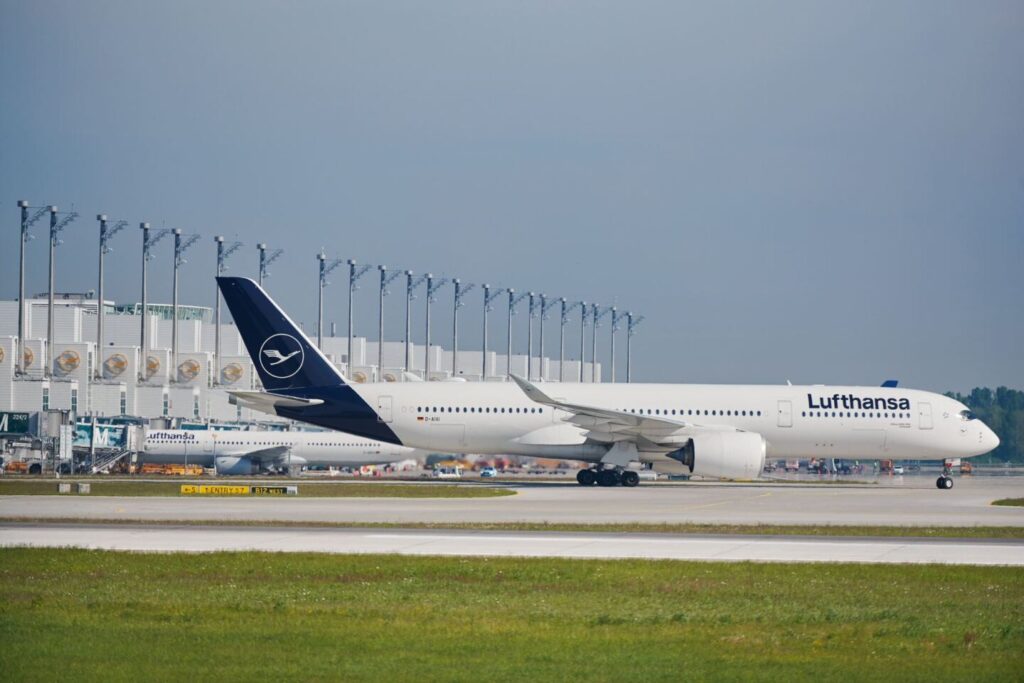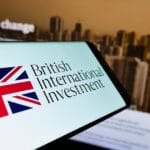Lufthansa Group and VARO Energy Sign MoU for Cooperation in the Field of Sustainable Aviation Fuels

- Energy company VARO could supply large quantities of Sustainable Aviation Fuel (SAF) to the Lufthansa Group from as early as 2026
- Cooperation to include innovative processes for the production of biogenic hydrogen
- Sustainable Aviation Fuels are essential for ecological transformation
The Lufthansa Group and the energy company VARO are expanding their long-standing partnership and have signed a Memorandum of Understanding (MoU) on the production and supply of Sustainable Aviation Fuel. This means that VARO could supply the Lufthansa Group with large volumes of SAF from as early as 2026, for example to the Munich airport hub. The companies are also driving innovative processes to produce green hydrogen from biogenic waste materials. Green hydrogen is a significant CO2-free energy carrier that also plays an important role in the production of SAF.
The MoU underpins the Lufthansa Group’s goal of driving forward the availability, market ramp-up and use of Sustainable Aviation Fuels as a core element of its sustainability strategy. The airline group is continuously reviewing options for long-term purchase agreements and is already one of the largest customers of SAF in Europe.
For VARO, the goal of providing decarbonization solutions to the aviation industry forms an important pillar of its corporate strategy. From 2026, VARO aims to produce around 260,000 tons of Sustainable Aviation Fuel per year.
See related article: Lufthansa and OMV Partner to Produce 800,000 Tons of Sustainable Aviation Fuel
SAF – the sustainable aviation fuel
SAF is the generic term for all aviation fuels that are produced without the use of fossil energy sources such as crude oil or natural gas. Various production processes exist and different feedstock are available as energy sources. The current SAF is mainly produced from biogenic residual materials such as used cooking oil. As a so-called “drop-in” solution, it is mixed with conventional kerosene before being transported to the airport. The maximum blending rate of SAF permitted under the fuel specification is currently 50 percent. In its pure form, SAF from biogenic residues can reduce CO2 emissions by up to 80 percent compared to conventional kerosene. The Lufthansa Group has been involved in SAF research for many years, has built up an extensive network of partnerships and is driving forward the introduction of sustainable next-generation aviation fuels in particular. Special focus is placed on the forward-looking Power-to-Liquid and Sun-to-Liquid technologies, which use renewable energies or solar thermal energy as energy carriers.
Destination sustainability: Into the future with a clear strategy
The Lufthansa Group has set itself ambitious climate protection goals and aims to achieve a neutral CO₂ balance by 2050. Already by 2030, the Lufthansa Group wants to halve its net CO₂ emissions compared to 2019 through reduction and compensation measures. The reduction roadmap until 2030 was validated by the independent Science Based Targets Initiative (SBTi) in August 2022. The Lufthansa Group was the first airline group in Europe with a science-based CO₂ reduction target in line with the goals of the 2015 Paris Climate Agreement. To reduce CO₂, the Lufthansa Group is focusing in particular on accelerated fleet modernization, the use of Sustainable Aviation Fuels, the continuous optimization of flight operations, and offers for its private travelers and corporate customers to make a flight or the transport of cargo more sustainable.












